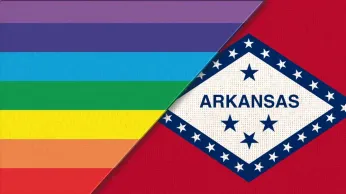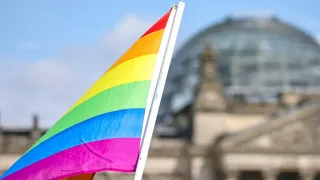
Jul 30
Arkansas ‘Whites-Only’ Community Sparks Outrage, Investigation Over Exclusion of Black, Jewish, and Queer People
READ TIME: 3 MIN.
A remote area of northern Arkansas has become the unlikely epicenter of a national debate on race, religion, and LGBTQ+ rights following the emergence of Return to the Land (RTTL), a community that admits only people of “European ancestry” and those with “traditional views” . According to statements made by co-founder Eric Orwoll, RTTL’s membership criteria expressly exclude Black, Jewish, and LGBTQ+ individuals, sparking condemnation from a wide array of advocacy organizations and public officials .
The community, which occupies more than 150 acres in the Ozark hills and claims around 40 residents, has its own infrastructure, including cabins, a schoolhouse, and a community center . RTTL’s website and promotional materials openly state their intent to “preserve European identity,” and the group is actively seeking to expand into other states, including Missouri and potentially regions across the U.S. .
The group’s open exclusion of people based on race, religion, and sexual orientation has drawn swift rebuke. Arkansas Attorney General Tim Griffin announced an official investigation into the group, stating: “Racial discrimination has no place in Arkansas or anywhere in a free society” . The Attorney General’s office is examining whether RTTL’s practices violate state and federal anti-discrimination laws, including protections for LGBTQ+ people and religious minorities.
Civil rights advocates and LGBTQ+ organizations have condemned the group’s practices as a dangerous step backward. “This is an alarming example of how old prejudices are finding new forms in rural America,” said a spokesperson for a national LGBTQ+ rights group, calling on lawmakers and law enforcement to act swiftly to ensure that such exclusionary practices do not become normalized.
For LGBTQ+ people, the explicitly stated ban is a chilling reminder of ongoing discrimination in the United States. Advocates note that the group’s rhetoric and membership criteria are reminiscent of Jim Crow-era segregationists and extremist groups, but now wrapped in the language of “private association” and “cultural preservation” .
RTTL’s co-founders have publicly defended their approach. In an interview with local media, Orwoll argued that “White Americans who value their ancestry will have the ability to live among like-minded people in the future if they choose to do so, regardless of demographic changes” . He also indicated plans to organize homeschooling groups, healthcare collectives, and legal advocacy networks that would be restricted to white members only, raising further concerns about the denial of basic services to marginalized groups .
LGBTQ+ leaders say this exclusion sets a dangerous precedent. “When communities are allowed to openly ban people for being who they are—whether that’s Black, Jewish, or LGBTQ+—it sends a message that hate is acceptable,” said a spokesperson for the Human Rights Campaign (HRC). They emphasized the importance of federal and state protections that safeguard against discrimination in housing, education, and public accommodations.
The story has generated widespread attention on social media, with thousands expressing outrage and solidarity with those excluded from RTTL . Many have drawn parallels between RTTL and other recent attempts to legitimize discrimination under the guise of “cultural preservation.” Activist groups and legal experts warn that, if left unchecked, such efforts could inspire similar initiatives elsewhere.
State and local officials in Arkansas and Missouri have begun examining zoning laws, membership practices, and civil rights statutes to determine what actions can be taken. National LGBTQ+ and civil rights organizations are calling for vigilance and renewed advocacy to ensure that all people, regardless of identity, are protected from discrimination.
For LGBTQ+ Arkansans and those in neighboring states, the emergence of RTTL is a stark reminder of the work that remains to be done to secure full equality. Advocates urge affected individuals to report any incidents of discrimination to local authorities and to seek support from national organizations.
As the investigation continues, many are watching to see how Arkansas—and the nation—will respond to this challenge to fundamental rights and inclusivity.






